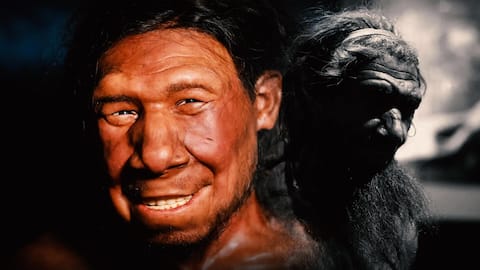Study suggests why you may not be a morning person
What's the story
A recent study published in Genome Biology and Evolution suggests that early risers may have inherited genetic traits from Neanderthals, making them more likely to be morning people. It suggests that the human body clock is influenced by social, cultural, and genetic factors. Neanderthals, who evolved at high latitudes in Asia and Europe, may have been better adapted to seasonal daylight changes compared to early Homo sapiens.
Details
Adapting to changes in daylight
This adaptation could have been passed on to early Homo sapiens as they migrated north from Africa and interbred with Neanderthals, who went extinct around 40,000 years ago. Study co-author Tony Capra stated, "At higher latitudes, it is beneficial to have a body clock that is better able to anticipate and change to match the changing seasonal light levels. Having a 'faster' running clock facilitates this ability and it makes individuals more likely to rise early."
History
A look back at history
Neanderthals were shown to have shared several genetic variations associated with clocks with early risers. Neanderthal DNA research has revealed our species' complex past since the 1990s. Our lineages started diverging some 700,000 years ago, most likely in Africa. The Neanderthal lineage moved into Eurasia, but the ancestors of modern humans mostly remained in Africa. About 400,000 years ago, the population divided. Neanderthals were the hominins that migrated westward. The people who are known as Denisovans are their eastern cousins.
What Next?
Analyzing ancient DNA
The research team analyzed DNA from the standard human genome, Neanderthal genome, Denisovan genome, and another archaic human closely related to Neanderthals. By comparing genes influencing circadian rhythms in archaic and modern DNA, they identified multiple differences in body clock function. They then examined the UK Biobank, a medical database with genetic and health information for hundreds of thousands of people.
Insights
Neanderthal DNA more common in morning people
Capra explained that they tested whether bits of Neanderthal DNA remaining in modern populations are more prominent in morning people. "We found that Neanderthal DNA that remains in modern humans due to interbreeding has a significant... effect. In particular, the Neanderthal DNA that associates with chronotype consistently increases propensity to be a morning person." However, being a morning person doesn't need Neanderthal genes, as numerous genes affect sleep and wake patterns, with environmental and cultural factors playing a role.
Facts
Faster running clock for higher latitudes
Capra who is also the associate professor at the Bakar Computational Health Sciences Institute at the University of California, says, "We don't think that being a morning person is actually what was beneficial. Rather, we think it is a signal of having a faster running clock that is better able to adapt to seasonal variation in light levels." Prof Mark Maslin of University College London added, "Now we have genetic evidence that some of us really are morning people."
